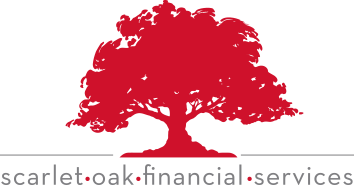How Student Loans Impact Your Credit: Managing Debt and Protecting Your Financial Future
For many college graduates, student loans are a necessary part of financing higher education. However, once repayment begins, these loans play a major role in shaping your credit history and credit score, which in turn affects your ability to secure other forms of credit, such as car loans, mortgages, and credit cards. How well you manage your student loan payments can either help build a strong credit profile or create financial obstacles that can take years to overcome.
Understanding how student loans impact your credit is essential to making informed financial decisions. Timely payments can improve your credit score, while missed or delinquent payments can have long-term negative effects. Additionally, student loan debt can influence your debt-to-income ratio, a key factor lenders consider when approving new credit. This guide will explore how student loans affect your credit score, what lenders look for, and strategies to manage your debt effectively so you can stay financially healthy.
It’s payback time
When you left school, you enjoyed a grace period of six to nine months before you had to begin repaying your student loans. But they were there all along, sleeping like an 800-pound gorilla in the corner of the room. Once the grace period was over, the gorilla woke up. How is he now affecting your ability to get other credit?
One way to find out is to pull a copy of your credit report. There are three major credit reporting agencies, or credit bureaus — Experian, Equifax, and Trans Union — and you should get a copy of your credit report from each one. Keep in mind, though, that while institutions making student loans are required to report the date of disbursement, balance due, and current status of your loans to a credit bureau, they’re not currently required to report the information to all three, although many do.
If you’re repaying your student loans on time, then the gorilla is behaving nicely, and is actually helping you establish a good credit history. But if you’re seriously delinquent or in default on your loans, the gorilla will turn into King Kong, terrorizing the neighborhood and seriously undermining your efforts to get other credit.
What’s your credit score?
Your credit report contains information about any credit you have, including credit cards, car loans, and student loans. The credit bureau (or any prospective creditor) may use this information to generate a credit score, which statistically compares information about you to the credit performance of a base sample of consumers with similar profiles. The higher your credit score, the more likely you are to be a good credit risk, and the better your chances of obtaining credit at a favorable interest rate.
Many different factors are used to determine your credit score. Some of these factors carry more weight than others. Significant weight is given to factors describing:
- Your payment history, including whether you’ve paid your obligations on time, and how long any delinquencies have lasted
- Your outstanding debt, including the amounts you owe on your accounts, the different types of accounts you have (e.g., credit cards, installment loans), and how close your balances are to the account limits
- Your credit history, including how long you’ve had credit, how long specific accounts have been open, and how long it has been since you’ve used each account
- New credit, including how many inquires or applications for credit you’ve made, and how recently you’ve made them
Student loans and your credit score
Always make your student loan payments on time. Otherwise, your credit score will be negatively affected. To improve your credit score, it’s also important to make sure that any positive repayment history is correctly reported by all three credit bureaus, especially if your credit history is sparse. If you find that your student loans aren’t being reported correctly to all three major credit bureaus, ask your lender to do so.
But even when it’s there for all to see, a large student loan debt may impact a factor prospective creditors scrutinize closely: your debt-to-income ratio. A large student loan debt may especially hurt your chances of getting new credit if you’re in a low-paying job, and a prospective creditor feels your budget is stretched too thin to make room for the payments any new credit will require.
Moreover, if your principal balances haven’t changed much (and they don’t in the early years of loans with long repayment terms) or if they’re getting larger (because you’ve taken a forbearance on your student loans and the accruing interest is adding to your outstanding balance), it may look to a prospective lender like you’re not making much progress on paying down the debt you already have.
Getting the monkey off your back
Like many people, you may have put off buying a house or a car because you’re overburdened with student loan debt. So what can you do to improve your situation? Here are some suggestions to consider:
- Pay off your student loan debt as fast as possible. Doing so will reduce your debt-to-income ratio, even if your income doesn’t increase.
- If you’re struggling to repay your student loans and are considering asking for a forbearance, ask your lender instead to allow you to make interest-only payments. Your principal balance may not go down, but it won’t go up, either.
- Ask your lender about a graduated repayment option. In this arrangement, the term of your student loan remains the same, but your payments are smaller in the beginning years and larger in the later years. Lowering your payments in the early years may improve your debt-to-income ratio, and larger payments later may not adversely affect you if your income increases as well.
- If you’re really strapped, explore extended or income-sensitive repayment options. Extended repayment options extend the term you have to repay your loans. Over the longer term, you’ll pay a greater amount of interest, but your monthly payments will be smaller, thus improving your debt-to-income ratio. Income-sensitive plans tie your monthly payment to your level of income; the lower your income, the lower your payment. This also may improve your debt-to-income ratio.
- If you have several student loans, consider consolidating them through a student loan consolidation program. This won’t reduce your total debt, but a larger loan may offer a longer repayment term or a better interest rate. While you’ll pay more total interest over the course of a longer term, you’ll also lower your monthly payment, which in turn will lower your debt-to-income ratio.
- If you’re in default on your student loans, don’t ignore them — they aren’t going to go away. Student loans generally cannot be discharged even in bankruptcy. Ask your lender about loan rehabilitation programs; successful completion of such programs can remove default status notations on your credit reports.
Managing Student Loans for a Strong Financial Future
While student loan debt can feel overwhelming, proactive financial planning can help you manage repayments without damaging your credit. Making payments on time, exploring different repayment options, and considering loan consolidation are all strategies that can improve your debt-to-income ratio and make your financial obligations more manageable.
If you’re struggling with student loan payments, it’s crucial to act quickly—delinquency and default can have serious consequences on your credit report. Instead of ignoring the problem, consider reaching out to your loan servicer to discuss options such as income-driven repayment plans, forbearance, or loan rehabilitation programs. By taking control of your student loans, you can protect your credit score and set yourself up for long-term financial success.
Scarlet Oak Financial Services can be reached at 800.871.1219 or contact us here. Click here to sign up for our weekly newsletter with the latest economic news.
Source:
Broadridge Investor Communication Solutions, Inc. prepared this material for use by Scarlet Oak Financial Services.
Broadridge Investor Communication Solutions, Inc. does not provide investment, tax, legal, or retirement advice or recommendations. The information presented here is not specific to any individual’s personal circumstances. To the extent that this material concerns tax matters, it is not intended or written to be used, and cannot be used, by a taxpayer for the purpose of avoiding penalties that may be imposed by law. Each taxpayer should seek independent advice from a tax professional based on individual circumstances. Scarlet Oak Financial Services provide these materials for general information and educational purposes based upon publicly available information from sources believed to be reliable — we cannot assure the accuracy or completeness of these materials. The information in these materials may change at any time and without notice.



